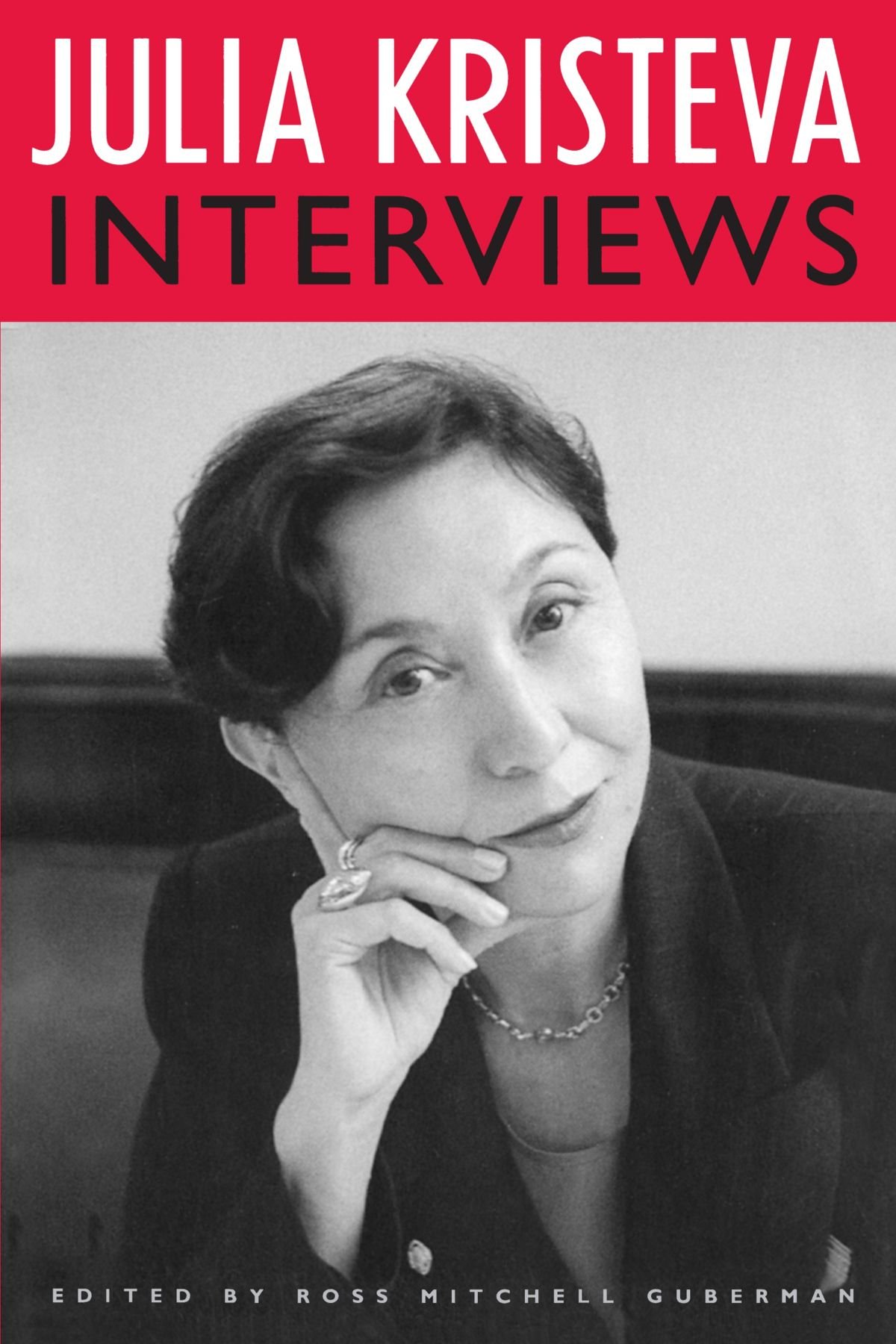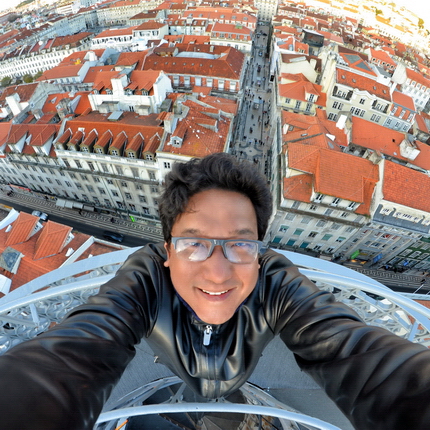
French-Bulgarian psychoanalyst Julia Kristeva occupies an enviable seat in the rarefied arena of female philosophers in the expansive traditions of western thought and philosophy; although, I do get the sense that she does not quite wear the singular ‘descriptor’ of ‘philosopher’ with ease, for her ‘oeuvre’ is anything but conventional and she continues to bring together insights from fields as far flung as religious scholarship, avant-garde literature, psychoanalytic theory, and philosophy. In one of my quests to comprehend religious belief better, I picked up Kristeva’s ‘This Incredible Need to Believe’ (2011) a couple of years ago, and was much the wiser for it. Kristeva is possibly part of a philosophic tradition that takes the notion of ‘Subjectivity’ as a starting point. (Note: Subjectivity – persons better understood as subjects NOT selves, for various phenomena, known and unknown, profoundly shape how people come to be.) This tradition can, in a way, be traced back to the 19th C, in the work of the German philosophers Hegel and (much later) Nietzsche. In the 1960s and 70s, Kristeva was one of the first thinkers to usher in “post-structuralism” and she continues to be one of the most popular public intellectuals in France, with her work over the decades distinctly impacting the terrain in linguistics, literary criticism, feminist philosophy and psychoanalytic theory. Here, she is in conversation with Prof. Jules Law, (Northwestern University, Evanston, Illinois, USA) talking about a broad range of areas of her intellectual engagement – from psychoanalysis, belief and faith, to humanism as a perpetual reconstruction, to feminism and much more. Listen in.

 Photo gallery
Photo gallery I discover TL of a writer and respected intellectual, with a tolerant, global conscience: @GhoshAmitav – tx @Milindo_Taid
I discover TL of a writer and respected intellectual, with a tolerant, global conscience: @GhoshAmitav – tx @Milindo_Taid Absolutely amazing blog – a chest full of treasure.
Absolutely amazing blog – a chest full of treasure. Photo gallery
Photo gallery We need more teachers like you :)
We need more teachers like you :) Milindo Taid – ace teacher, rockstar guide to my projects at film school, guitarist and photographer too. Really good human being as well
Milindo Taid – ace teacher, rockstar guide to my projects at film school, guitarist and photographer too. Really good human being as well Photo gallery
Photo gallery Photo Gallery
Photo Gallery Its really good to see you Milindo, with such awesome stuff from you as usual.. loved your blog as well!
Its really good to see you Milindo, with such awesome stuff from you as usual.. loved your blog as well! You have inspired so many. :)
You have inspired so many. :) Your courses were always the best. By the way, just went through a bit of your website. It’s great! Some good stuff in there that I wouldn’t normally chance upon
Your courses were always the best. By the way, just went through a bit of your website. It’s great! Some good stuff in there that I wouldn’t normally chance upon Photo Gallery
Photo Gallery Still a fan of your unique and sweet finger strum on acoustic guitar. It made an ordinary guitar sound great. Would just love to see and hear one of those too.
Still a fan of your unique and sweet finger strum on acoustic guitar. It made an ordinary guitar sound great. Would just love to see and hear one of those too. Photo gallery
Photo gallery Your website is full of delightful posts. I’m going to have to watch where my time goes when I’m visiting! :)
Your website is full of delightful posts. I’m going to have to watch where my time goes when I’m visiting! :) Photo gallery
Photo gallery You are awesome :)
You are awesome :) Just detected your blog: impressive. wishing you continued inspiration and health.
Just detected your blog: impressive. wishing you continued inspiration and health. Photo gallery
Photo gallery Milind never told u but u were my first true inspiration….I almost learnt the guitar watching u play…..thanx for being there
Milind never told u but u were my first true inspiration….I almost learnt the guitar watching u play…..thanx for being there i really like your blog – good interesting stuff as always !
i really like your blog – good interesting stuff as always ! love ur pics…they are like those moments which u capture in your mind and wished u had a camera right at that moment to capture it…but u actually do capture them :) beautiful…!!!
love ur pics…they are like those moments which u capture in your mind and wished u had a camera right at that moment to capture it…but u actually do capture them :) beautiful…!!! You’re a role model sir, such awesomeness !!! :D
You’re a role model sir, such awesomeness !!! :D Photo gallery
Photo gallery Grt milindo. eachtime want to check out something good on net…know where to go now!
Grt milindo. eachtime want to check out something good on net…know where to go now! Photo gallery
Photo gallery #NowFollowing @Milindo_Taid One of the most influential n interesting mentor from my design school. Always loaded. :)
#NowFollowing @Milindo_Taid One of the most influential n interesting mentor from my design school. Always loaded. :) Never thought I’d say this, but it was the most interesting classes I’ve sat in.. and of course, the day you played Sultans of Swing for us. Hope you continue to influence the next generations with your dynamic yet simple teachings.
Never thought I’d say this, but it was the most interesting classes I’ve sat in.. and of course, the day you played Sultans of Swing for us. Hope you continue to influence the next generations with your dynamic yet simple teachings. This is by far amongst the best curated creative content sites out there and the eye and vision of one man, when good, works better than any funded team. Inspired enormously once again :)
This is by far amongst the best curated creative content sites out there and the eye and vision of one man, when good, works better than any funded team. Inspired enormously once again :) Photo gallery
Photo gallery Photo gallery
Photo gallery Love your site Milindo. I was excited to see you displaying my husband’s watermelon carvings
Love your site Milindo. I was excited to see you displaying my husband’s watermelon carvings veryveryinterestingwebsite.have been visiting! thankyou!
veryveryinterestingwebsite.have been visiting! thankyou! Oldest operating bookstore
Oldest operating bookstore Photo gallery
Photo gallery Photo gallery
Photo gallery Photo gallery
Photo gallery Photo gallery
Photo gallery So glad you enjoyed my photos, really honored to be featured on your blog. thank you sir!
So glad you enjoyed my photos, really honored to be featured on your blog. thank you sir! Photo Gallery
Photo Gallery Hi Milindo, hope you are inspiring many more around you…wherever you are!
Hi Milindo, hope you are inspiring many more around you…wherever you are! With all the magical places you are checking off your bucket list! I want to know how to be you :)
With all the magical places you are checking off your bucket list! I want to know how to be you :) You are the only faculty member I could connect to!
You are the only faculty member I could connect to! Guitar in your hand reminds me of the MCRC days! You are terrific… :)
Guitar in your hand reminds me of the MCRC days! You are terrific… :) Photo gallery
Photo gallery Photo gallery
Photo gallery OMG its like a painting!! you have taken photography to another level!!!
OMG its like a painting!! you have taken photography to another level!!! You are inimitable!
You are inimitable! Photo gallery
Photo gallery Photo gallery
Photo gallery I was just looking at your website… amazing it is… full of knowledge as always..
I was just looking at your website… amazing it is… full of knowledge as always.. great blog :)
great blog :) You’ll love this site by the awesome Milindo Taid
You’ll love this site by the awesome Milindo Taid